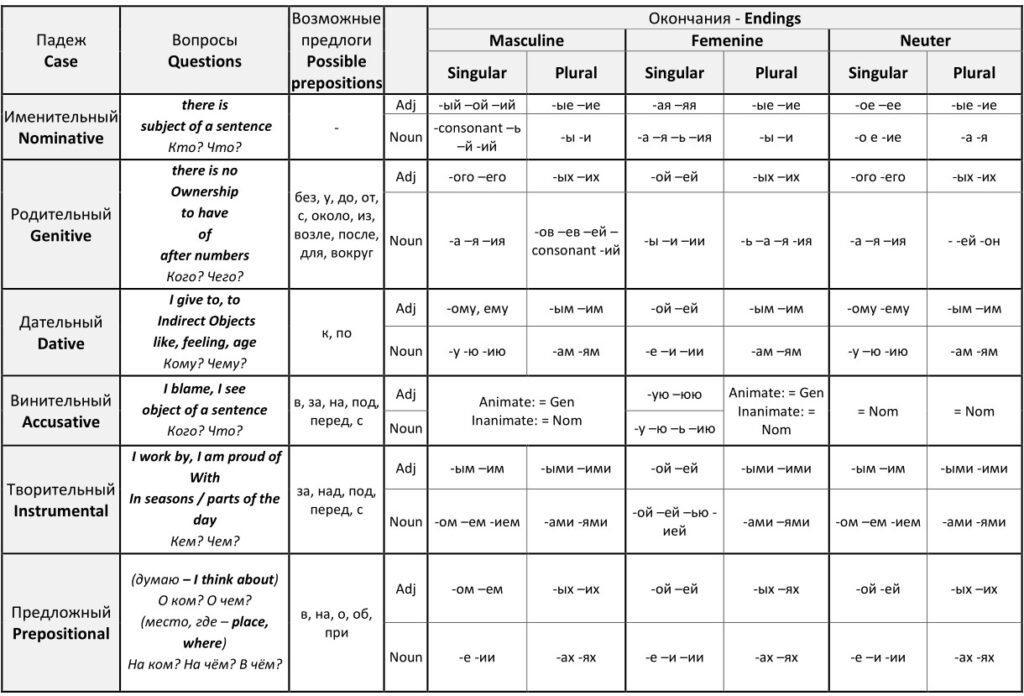In the modern Russian language in the classical grammar are 6 cases: nominative, genitive, dative, accusative, instrumental and prepositional.
Именительный падеж – Nominative case is a case that simply names something («Именовать» – «to name»). We often use this case to call someone or something by name.
Родительный падеж – Genitive case originates from from the Greek root GEN («genus» «род»). The genitive case could also be called the “parent” case («родительский падеж»). The primary use of the genitive case is to indicate possession. In addition, it is used in ‘There isn’t …’ sentences. It is commonly used with numbers and other quantities.
Дательный падеж – Dative case (Greek dotike) is also a literal translation from the Greek language. In Russian the name of the dative case comes from the word «дать» – «to give». The Russian dative case is used to represent the indirect object. This is the person or thing that receives the main object.
Винительный падеж – Accusative case. It’s name originates from the word «винить» – «to accuse, blame». Acuusative is used for direct object, an object, directly experiencing some action on it.
Творительный падеж – Instrumental case. Its name is associated with the verb «творить» – «to do, to create». The instrumental case is used to illustrate the concepts of ‘with’ and ‘by means of’. Another way to think about it is that it represents the ‘instrument’ that was used to carry out the action.
Предложный падеж – Prepositional case is used only with prepositions («предлоги»). Hence its name. In Old Russian it was used without pretext to indicate a location. And it was «местный» – «local». In 1775 in “Russian Grammar” Mikhail Lomonosov called it prepositional. When answering questions asked with the word “Где” (Where is (location)), your answer will involve the prepositional case.

Subscribe to our newsletter!
